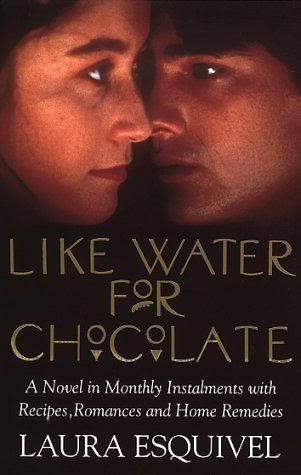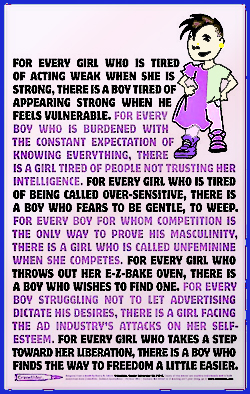The book club meeting was dreamy! Lots of interesting discussion that led to more discussions. And lucky for me, not only did I get to use what I learned in economics, I also discussed some authors we read in African American Lit, like Ida B. Wells-Barnett and Stokley Carmichael. A member's roommate and apparent book club benefactor made theme color cupcakes and they were delicious! So, not surprisingly, after discussing books and downing several bottles of wine we expanded our gathering to non members and hit the town. Dedicating "blond headed slut" shots to reading was a good thing. Of course, I was exhausted because I had been up since 5 AM and that was on three hours of sleep that severally affected my cognitive skills the entire day, so when I was in the bathroom of Bella Note's, complaining to a person I was with about how tired I was, another girl came out of the bathroom and said, "you know what will fix that? Shots!" And you know, she was right! If I took every physics test drunk instead of sleep deprived I'd probably be a way better test taker, not only would I feel wide awake I wouldn't be anxious. But, I don't see an experiment like that going particularly well so I probably won't try it especially since when I'm on campus I like to go to the library and although my brain may be at peak performance under the influence my body can't keep up, might fall down some stairs if I stressed it too much. Oh well! Also, every single time I've ever been in the bathroom at Bella Note's someone gives me advice or provides me with the answer to a question. It's not my favorite hang out, that's for sure, but their bathroom could take the role of a church in my life, you know, when I need spiritual guidance.
Anyway, the English major let us pick between the next book, it was either Lance Armstrong somethingorother or Born To Run. Damnit, I forgot that the only thing worse than an English major is an English major athlete/fitness fiend. So, we're going with Born to Run, and the meeting is in three weeks, and I am predicting at least one person will show up barefoot or wearing those feminine napkin looking things on their feet.
Anyway,
something Freakonomics discusses is incentives, how they work, when they don't work, how they're not as good of motivation as common knowledge tends to think. They discussed how incentives lead to cheating -- by teachers -- in standardized testing where incentives are attached. They also discuss incentives for students and I thought it was pretty interesting, although to a well distinguished slacker like me a lot of it was common knowledge. There are limits to what money will motivate a person to do. So there's limits, and of course, sometimes people who got my grades weren't slackers like me but instead people with learning disabilities or anxiety issues (okay as a child and teenager I did have that and a weird ocd thing when I had to fill in bubble tests) or who have a whole other host of issues that aren't being addressed. So, for the kids who are capable of doing the work and who don't need additional help, how does a teacher come up with an incentive program?
Well, Dan Pink has a few ideas of how to do this in business and I think it could just as easily be applied to schools:
He discusses extrinsic vs. intrinsic incentives, mastery, purpose, and autonomy vs. financial incentives.
He argues that only mechanical tasks benefit from financial incentives where as they backfire when the task requires cognitive thinking skills.
This is an animated video along similar lines, some of it he says in the first one, some of it he doesn't.
Obviously, as far as teaching goes, this goes against the standardized testing incentive model for teachers and schools, and it goes against some of what is told to children to motivate them in school. Because, even though Ken Robinson points out that college degrees are no longer guarantees, the narrative still is one about not flipping burgers for the rest of your life. One author of Freakonomics, Steve Levitt, has an incredibly irritating video on youtube where he discusses "tricking" your workers into thinking what they're doing is important. It's irritating to me because the reality is that workers ARE important and without them businesses couldn't operate. But, I understand his point. If you think you are important, if what you're doing is important, then that's a big incentive. Almost everyone wants meaning and purpose in their life -- hell, how many young teen moms think that having a child is going to fulfill a purpose or give them someone to love them and someone for them to love. Everyone seems to have some spiritual void that they need to fill up, be it with god or children or work or charity. And that's OK. Wanting meaning and purpose in life are wonderful things, so the trick I think, is to try and show students why what they're doing and why what they're learning matters. There has to be SOME meaning to why you're reading Shakespeare and no one is going to believe that it is somehow going to get you a good career with good money and a 401k.
One way in which I think we could instill meaning into class work is by having students work on an external project where they apply what they've learned. It could be tutoring younger students in the same area or working on something that will have some importance to them and others. I think art classes have the right idea because so many art classes end in exhibitions, and that allows students to see the importance of their work OUTSIDE of the classroom. Maybe science fairs are similar examples (not sure, my school never had them), but I'm thinking about something bigger -- something outside of school. I wonder if there are any publications that public high schools collaborate on, such as a journal including the best student research or science fair projects and their results. It would be cool if science fair winners were put into a journal, and perhaps schools could partner with research universities or scientists to put on some type of award ceremony/lectures about how relevant the research is to what they've gone on to do in their careers. The same thing would be cool for math, writing, music (mix cds!), and whatever. And maybe having students do research that would be used for something significant (like a local museum exhibition) would help provide their daily work with some meaning that acts as an incentive. I'm going to keep this idea in mind as I construct my fake online class.
. . . . But for now, I'm going to continue reading Claude McKay since I put him down to take a nap. One day after courses end and I already feel so well rested. Which is good because I'm going to need those cognitive thinking skills to solve my very own candle problem(s).





